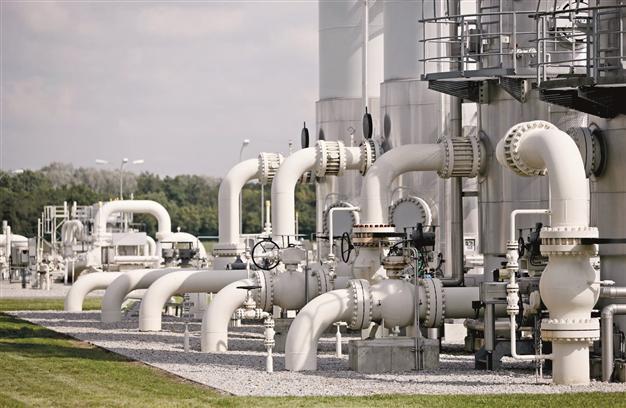Turkey aims to become a gas hub for Europe
ANKARA - Anadolu Agency

Turkey currently has two operational LNG terminals, one in the Marmara district of Ereğli and one in the Aegean district of Aliağa. A new terminal will come online in 2015.
Turkey could become a natural gas hub with its LNG terminals at the border of Greece and Bulgaria, according to an official from BOTAŞ, Turkey’s state-run gas pipeline company.“The natural gas transmission pipelines of Turkey could be integrated with the EU if Greece does not build a new LNG terminal,” Hızır Hakan Ünal, a gas transmission expert for BOTAŞ, said in a new report, titled “Third Party Access to Turkey’s Natural Gas Transmission System 2007-2013.”
“Turkey may receive a visa to EU’s energy market by letting Greece and Bulgaria use its LNG terminals,” Ünal added.
BOTAŞ will build a new natural gas pipeline in the northwestern Turkish district of Çorlu by April 2015. “After the completion of the construction of the pipeline, the natural gas capacity in Greece will also increase,” Ünal said, adding that in addition to current natural gas agreements, Turkey could be a link for natural gas transfer to Europe.
“Turkey’s LNG terminals have third-party access, which means that European countries could use our LNG terminal for gasification,” he said.
Turkey has two operational LNG terminals, in the Marmara district of Ereğli and in the Aegean district of Aliağa right now.
Turkey currently imports 4 billion cubic meters of LNG from Algeria per year and 1.2 billion cubic meters of LNG from Nigeria via its LNG terminals. For Turkey, LNG is key to becoming one of the most important energy hubs between the Middle East and Europe, along with the Trans-Anatolian Pipeline (TANAP) that will bring Azerbaijani gas from Shah Deniz through Turkey and on to European markets.
















